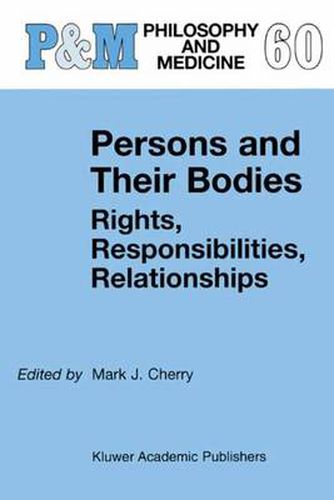Readings Newsletter
Become a Readings Member to make your shopping experience even easier.
Sign in or sign up for free!
You’re not far away from qualifying for FREE standard shipping within Australia
You’ve qualified for FREE standard shipping within Australia
The cart is loading…






This title is printed to order. This book may have been self-published. If so, we cannot guarantee the quality of the content. In the main most books will have gone through the editing process however some may not. We therefore suggest that you be aware of this before ordering this book. If in doubt check either the author or publisher’s details as we are unable to accept any returns unless they are faulty. Please contact us if you have any questions.
Debate regarding organ sales is largely innocent of the history of thought on the matter. This volume seeks to remedy this shortcoming. Positions for or against a market in human organs are nested within moral intuitions, ontological or political theoretical premises, or understandings of special moral concerns, such as permissible uses of the body, which have a long history of analysis. The essays compass the views of Plato, Aristotle, Aquinas, Locke, Kant, Hegel, Mill and Christianity, as well as particular methodological approaches, such as the phenomenology of the body, natural law theory, legal theory and libertarian critique of legal theory. These discussions cluster a number of conceptually independent philosophical concerns: (1) What is the appropriate understanding of the relationship between persons and their bodies? (2) What does it mean to ‘own’ an organ? (3) Do governments have moral authority to regulate how persons use their own body parts? (4) What are the costs and benefits of a market in human organs? Such questions are related by an urgent public health challenge: the considerable disparity between the number of patients who could significantly benefit from organ transplantation and the number of human organs available for transplantation. This volume explores the theoretical, normative, and historical foundations for alternative policies for procurement and transplantation of human organs.
$9.00 standard shipping within Australia
FREE standard shipping within Australia for orders over $100.00
Express & International shipping calculated at checkout
This title is printed to order. This book may have been self-published. If so, we cannot guarantee the quality of the content. In the main most books will have gone through the editing process however some may not. We therefore suggest that you be aware of this before ordering this book. If in doubt check either the author or publisher’s details as we are unable to accept any returns unless they are faulty. Please contact us if you have any questions.
Debate regarding organ sales is largely innocent of the history of thought on the matter. This volume seeks to remedy this shortcoming. Positions for or against a market in human organs are nested within moral intuitions, ontological or political theoretical premises, or understandings of special moral concerns, such as permissible uses of the body, which have a long history of analysis. The essays compass the views of Plato, Aristotle, Aquinas, Locke, Kant, Hegel, Mill and Christianity, as well as particular methodological approaches, such as the phenomenology of the body, natural law theory, legal theory and libertarian critique of legal theory. These discussions cluster a number of conceptually independent philosophical concerns: (1) What is the appropriate understanding of the relationship between persons and their bodies? (2) What does it mean to ‘own’ an organ? (3) Do governments have moral authority to regulate how persons use their own body parts? (4) What are the costs and benefits of a market in human organs? Such questions are related by an urgent public health challenge: the considerable disparity between the number of patients who could significantly benefit from organ transplantation and the number of human organs available for transplantation. This volume explores the theoretical, normative, and historical foundations for alternative policies for procurement and transplantation of human organs.